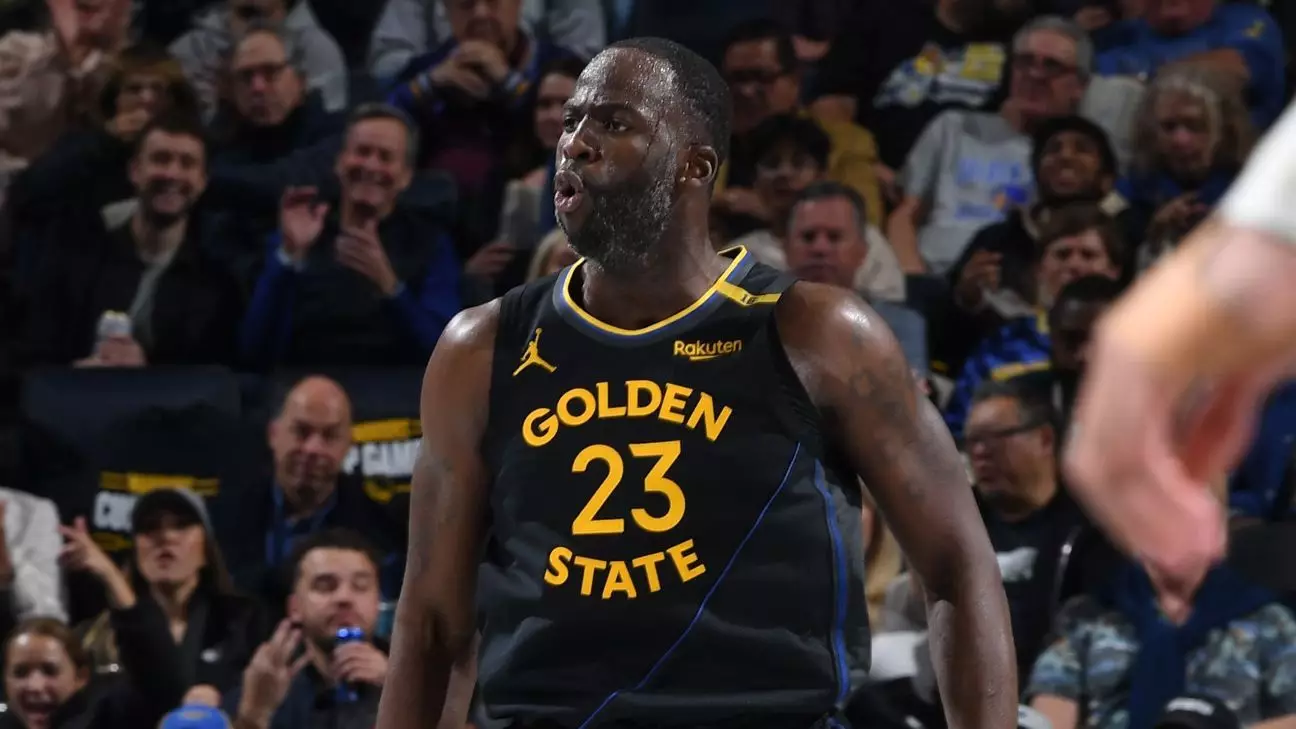In the world of professional sports, incidents of conflict are often thrust into the limelight, becoming part of an athlete’s legacy. For Draymond Green, a stalwart of the Golden State Warriors, a highly publicized altercation with former teammate Jordan Poole became a significant chapter in his career. Recently, Green expressed remorse regarding the incident that disrupted team dynamics over two years ago, marking a pivotal moment in his ongoing journey of personal growth and reflection.
The Incident That Shook the Warriors’ Foundation
In October 2022, a heated preseason practice session devolved into a scandal when a video surfaced showing Green throwing a punch at Poole after a brief exchange of words. This shocking act not only drew ire from fans and analysts alike but also revealed weaknesses in the Warriors’ locker room unity. The punch symbolized more than just an impulsive reaction; it mirrored underlying tensions and disagreements among players during a precarious moment—the team’s defense of their prior championship title.
Green’s actions led to an immediate fallout: he publicly apologized to Poole, received a fine from the organization, and voluntarily distanced himself from the team temporarily. However, his punishment came without any additional penalties from the NBA, allowing him to return to the court promptly. The incident catalyzed a ripple effect, setting in motion Poole’s eventual trade to the Washington Wizards, a decision intertwined with ongoing evaluations of team chemistry and performance.
Fast forward to the present, where Green finds himself in a reflective mood, voicing an apology to Poole and advocating for closure. Following Poole’s warm reception during his return to the Chase Center, Green’s reaction on social media indicated a desire to put the past behind them. He tweeted an apology while emphasizing the need to move forward, noting that lingering on the past does neither party any good.
In discussions released on “The Draymond Green Show,” Green acknowledged the complexities of the earlier conflict while maintaining that both parties had a role in the altercation. He stated, “I know I was wrong, but you can’t call a man a B-word and push him and not get hit, either.” This dual admission of responsibility illustrates the nuanced understanding Green has developed regarding personal accountability. His desire to reconcile is layered with the acknowledgment of how words and actions intertwine, demanding introspection not only from himself but also from those involved.
Green’s path to redemption did not merely stop at apologizing for the incident with Poole; it extends to his personal evolution as a player and as a person. He faced further disciplinary measures in the previous season, including suspensions and mandatory counseling after a series of altercations on the court. This awakening prompted Green to engage with mental health professionals, illustrating a commitment to change and growth. He now boasts a more restrained approach to confrontations, evident in his statistical reduction of ejects and technical fouls from past seasons.
In an interview with ESPN, Green expressed a desire for his actions to serve as a testament to personal growth. His proactive steps in seeking therapy and reflection resonate not only within the realm of sports but also in broader societal contexts where accountability is often met with resistance. The message is straightforward: personal failures don’t equate to being a failure; the key lies in acknowledging mistakes and learning from them.
As Green navigates the current season, marked by injuries and ongoing evaluations of his performance, he remains zealous about redefining his legacy. The immediate future sees him overcoming physical setbacks while also grappling with the broader implications of his previous actions. His journey remains emblematic of resilience, as he continues to evolve from incidents that once cast shadows over his reputation.
The landscape of the NBA is rife with complexities, yet through humility and the pursuit of redemption, Green illustrates that athletes can transcend their past transgressions. His journey serves as a reminder that everyone, regardless of their stature, is on a path of growth—powered by the tenets of accountability and understanding. In the end, Green not only seeks to mend relationships; he aims to illuminate pathways for others who grapple with their missteps, solidifying his role as both a player and a mentor within the larger community.


Leave a Reply